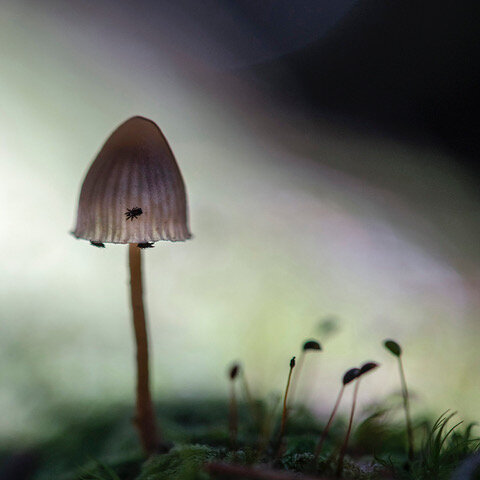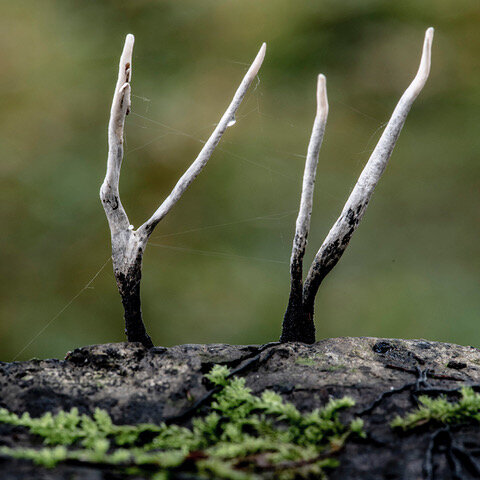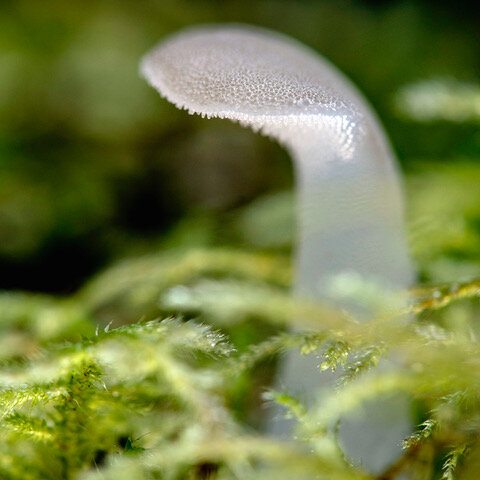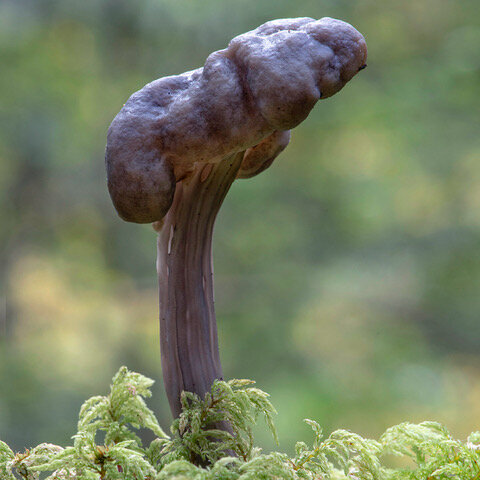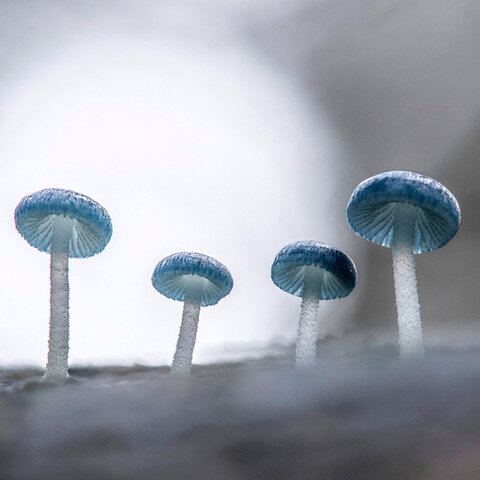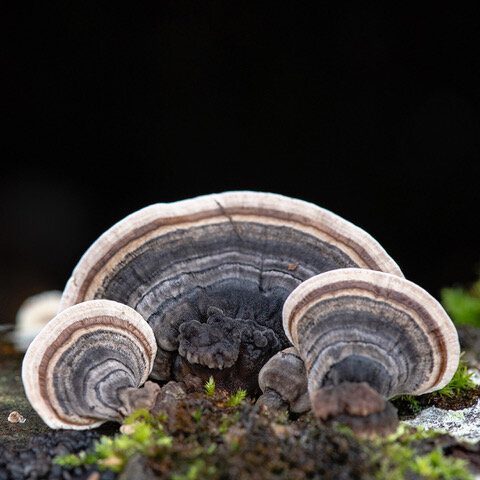By Sara Bellini
I first came across Alison Pouliot in the pages of Mervin Sheldrake’s book Entangled Life, published just a few months ago. Sheldrake introduces us to the world of fungi and their complexity: They can digest plastic and crude oil, they give us bread and medicines, and they connect plants in an underworld network. They are much more underrated than plants and animals, and yet they are extremely fascinating, if only we give them a chance to shine.
This is exactly what Alison Pouliot has been doing in her photography. With a scientific background as an ecology historian, Alison focuses on the more mysterious woodland creatures, like fungi, as well as on abandoned places bearing the traces of human disregard.
While admiring her photo essays, it occurs to me that we don’t simply occupy the planet, we are part of it, and yet there is so much we don’t know about it. I think about how, in order to build a more sustainable relationship with nature, it’s necessary to slow down and look closely at the other part in this equation. How deeply do we understand how the environment works, what it needs, which human behaviours are helpful and which ones are destructive? It’s this attentive and caring gaze that allows Alison to capture the diversity of fungi: soft-textured geometric patterns, ghostly shapes that could be the stunning guardians of the Underworld and alien-looking mushrooms with a glam aesthetic.
Her photography is now moving from a documentaristic to a more artistic approach: “I am striving to produce work that might just touch someone somewhere and make them feel differently about the world. It’s a time of such radical change and also a time of opportunity to test the waters and do things differently. I guess it’s often times of adversity that bring out the most innovative or creative or inspirational aspects of one’s work.”
Alison’s plans for the new year start with the publication in March of Wild Mushrooming, a book she had been working on for the past five years with mycologist Tom May. The book approaches foraging from the point of view of conservation and ecosystem balance. Alison lives between Australia and Switzerland and we caught up with her after she had just completed a series of six short videos on fungi and was back in Europe for the cold season.
What does home mean to you?
I’m not sure that I’ve ever really worked that out. It’s certainly not a physical place. I’ve straddled both hemispheres for the last two decades (so that I can have two autumns a year and get myself a double dose of fungi) so I don’t really have a sense of a particular ‘place’ called home. In a sense I feel like I’ve been on the move all my life as we moved around a good bit in my childhood as well. I have few material possessions and find it easy to make a nest and feel comfortable pretty much anywhere, so long as there’s clean air, natural surrounds and little concrete or noise. When people talk about ‘settling’ or ‘settling down’ or getting ‘tenure’ in a job, it makes me shudder.
Which place do you have a special connection to?
Oh wow, that’s a big question. I have a short list of several hundred... Anywhere in the field really, the more remote and less inhabited the better. Of course, as an Australian and having spent many years exploring that continent, I feel incredibly connected to it, especially to the remote and wide open spaces of the interior. The blank spaces on the map, those often ungraspable, indeterminate, shimmering places that can feel so old, so solid, yet like a dream. I can’t get enough of them!
But as I’m writing these words, I’m actually wondering if one can ever really feel ‘connected’ to a place, or do we just feel comfortable or familiar? I mean, of course it’s more palpable than that. Sure we can feel a powerful inexplicable affinity, or something bigger more visceral, a physical bodily sensation, an intensity that we feel in one particular place and not another, an attachment of sorts that can be profound, but is that really ‘connection’? I know when I return to my grandmother’s home in Tasmania, now occupied by new residents, that I feel an overwhelming and inextricably entwined sense of emotion and memory solely linked to that place, but I’m not sure that I’d call it connection.I’ll have to give that some more thought.
One of the things I love about Australia is its unpredictability, its extremes and its resistance to being controlled and regulated (as one sees, for example, in Europe) although we’re trying out hardest to do so. I love that it’s not ‘comfortable’, that it resists, that it’s so highly changeable. That it’s elusive and often incomprehensible. For me it begs one not to linger too long. It’s unsettling. It’s dis-placing. Perhaps I’m just more comfortable on the move.
What is beyond your front door?
Do you mean the flap of my tent? Wow, a wonderland of textures. A bruising storm front and ever changing light.
What place would you most like to visit?
I’m not sure that it’s ‘a’ place, a geographically defined place. A particular location. It’s anywhere that sparks my imagination and reverberates in such a way that excites or inspires or makes me feel vertiginous. Or perhaps where there’s something I feel or experience or taste that I’ve not done before. Or likewise, where a sense of intense familiarity can be just as compelling. While going back to loved places can be powerfully nostalgic or reassuring, I also think ‘going back’ can be hard. The world is changing so fast and it’s easy to become attached to the idea of how a place once was, and hence, once can quickly feel disappointed or disenchanted.
What are you reading / watching / listening to right now?
I’ve got several books on the go but am utterly engrossed in As we have always done by Leanne Betasamosake Simpson. An incredible piece of writing. I’m also re-reading some of the work of that amazing Alaskan anthropologist Richard “Nels” Nelson who died just over a year ago.
I’ve always got the radio or a podcast on and have just been listening to Nahlah Ayed’s program called Ideas on CBC (Canada) Radio. Am now listening to Far and Wide on RRR (Melbourne independent radio station). Otherwise everything from Anouar Brahem to Khruangbin to Carbon Based Lifeforms... As for viewing I’ve been watching some short docos on AeonVideos.
Alison Pouliot's website
Alison's video The Kingdom Fungi


